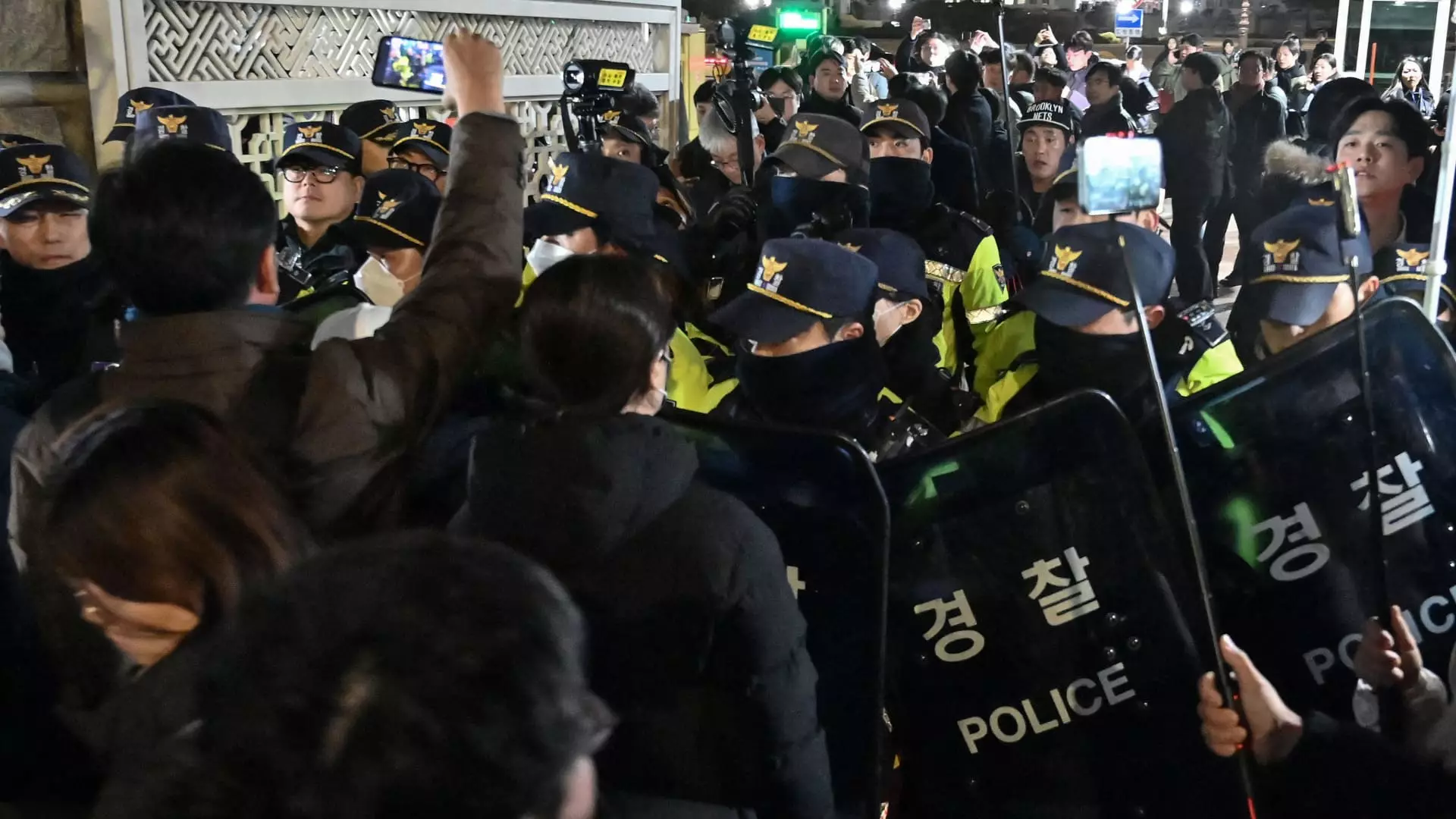In a dramatic turn of events for South Korea, President Yoon Suk Yeol’s recent invocation of emergency powers, culminating in a martial law declaration, sent shockwaves across financial markets, particularly impacting the United States trading of South Korean stocks. The iShares MSCI South Korea ETF, a key gauge for investors monitoring the performance of large and mid-sized South Korean companies, experienced a significant plunge, at one moment dropping by 7% and reaching a 52-week low—an alarming signal for investors already on edge regarding South Korea’s economic stability. This episode marks a critical juncture for the world’s thirteenth largest economy, showcasing how political decisions can swiftly translate into economic consequences.
The swift political maneuvering within the National Assembly illustrates the gravity of the situation, as 190 out of 300 legislators convened to challenge and eventually overturn the martial law decree just hours after it was enacted. This unprecedented rush to legislative action underscores the contentious political landscape in South Korea, where accusations of North Korean sympathies dominate discourse between the ruling party and the opposition. However, the resolution to overturn the martial law does little to quell fears among investors, as immediate losses continued to pile up in various sectors—Korea Electric Power’s American Depositary Receipts fell by 5%, while leading e-commerce firm Coupang and steel giant Posco saw declines of 6% and over 6%, respectively.
The Economic Ramifications of Emergency Powers
Martial law, a mechanism reserved for times of severe crisis, presents a unique challenge not just for governance but also for economic performance. Yoon’s declaration, the first since the 1980s, prohibits all political activities believed to incite social unrest, raising crucial questions about the long-term implications on South Korea’s established democratic processes. The Korea Exchange’s decision to convene emergency meetings highlights an urgent attempt to adjust to the rapidly shifting economic landscape, as market participants anxiously wait to see if the exchange will remain open for trading amid such unrest.
The broader implications of Yoon’s actions extend into foreign exchange markets, evidenced by a 1.9% spike in the value of the U.S. dollar against the South Korean won. This reaction indicates a lack of confidence among global investors who typically seek security in stable currencies. Increased volatility and uncertainty surrounding South Korea’s political climate require investors to reassess their risk profiles, as the potential for civil unrest poses a danger not only to domestic markets but also to international economic relationships.
As South Korea grapples with these uncertain times, the resilience of its economy will be tested. The clash between martial authority and democratic governance poses significant risks that could reverberate through sectors crucial for economic recovery. The next steps taken by both the government and the National Assembly will be critical in determining whether South Korea can stabilize its economic framework or if it will continue to slide down a path marked by political instability and market anxiety. Investors and observers alike will need to remain vigilant as they navigate this complex and challenging environment.

